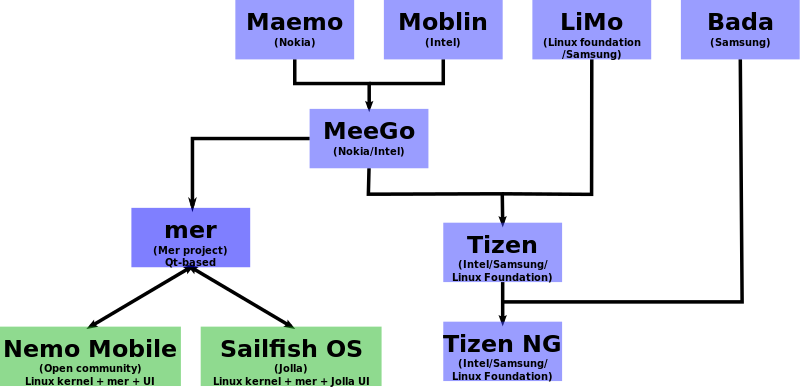

AS we pointed out the other day, Android is not the only game in town. Linux is being used in rival platforms and next week Jolla's Sailfish OS phone will be unveiled [1]. It uses some MeeGo code, so it will probably have a lot in common with Tizen, which also "turns up in an IVI system and a fridge" [2]. The Linux Foundation says [3] that Tizen is doing well and the more competition we have in this space, the more pressure there will be on Google to open up [4]. Without competition, there will always be this threat that Google will just use "open" for marketing, not much beyond that.
Mobile newcomer Jolla has confirmed it will start selling its first smartphone at the end of this month, and it’ll be launched in Finland on a local network called DNA. The news comes from Jolla’s official Twitter account, but it wasn’t welcomed by everyone, as there’s no confirmation of when those who pre-ordered the phone will be getting their devices.
Close on the heels of the revelation that Samsung’s NX300M camera runs Tizen, this week saw an announcement by Nexcom of a developer-focused, Intel Atom-based automotive computer called the VTC 1010-IVI that supports the Tizen In-Vehicle Infotainment (IVI) stack, plus news of a Tizen-enabled Samsung smart refrigerator. Meanwhile, Samsung’s first Tizen phones are rumored to be under test at Korean mobile carriers.
Tizen has been described as everything from “a troubled child” to “dead in the water”, but analysts still believe it has the best chance of the four major open source mobile operating systems to make an impact on the global smartphone market.
It is an opinion that Brian Warner, who oversees the Tizen project for the Linux Foundation, would agree with as he believes the operating system is capable “of scratching an itch” that is unaddressed by other leading non-Android open source platforms – Firefox OS, Sailfish and Ubuntu Mobile.
Speaking to TechWeekEurope, he says the main advantages of Tizen is that it is truly open source and manufacturers can make alterations to the interface without affecting compliance and compatibility standards – unlike Android.
If you are among those who purchased a Developer Edition handset and want its bootloader unlocked to tinker with the operating system, this one goes out to you. Up until now, requesting such an unlock code would void the warranty for your Developer Edition device. But in an interesting step towards pleasing the developer and enthusiast communities, Motorola has introduced two big changes to its Developer Edition Program.